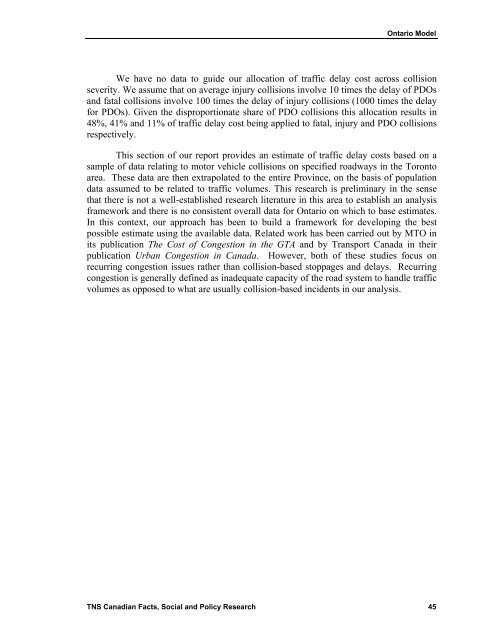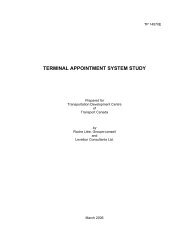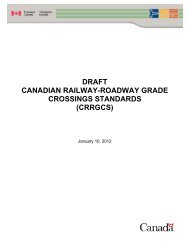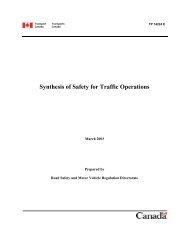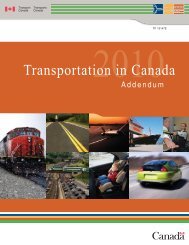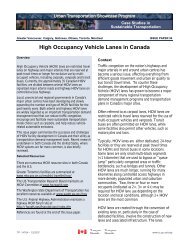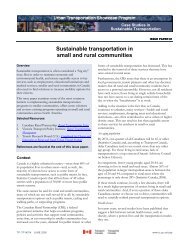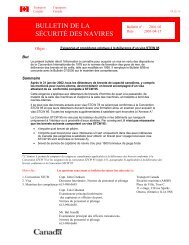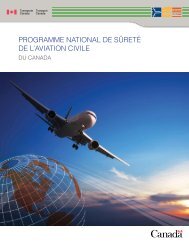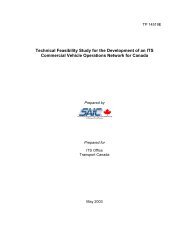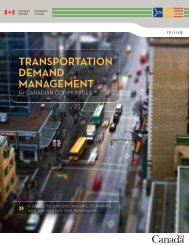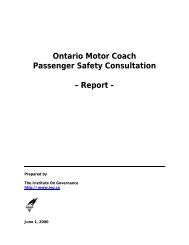Keith Vodden Dr. Douglas Smith - Transports Canada
Keith Vodden Dr. Douglas Smith - Transports Canada
Keith Vodden Dr. Douglas Smith - Transports Canada
Create successful ePaper yourself
Turn your PDF publications into a flip-book with our unique Google optimized e-Paper software.
Ontario Model<br />
We have no data to guide our allocation of traffic delay cost across collision<br />
severity. We assume that on average injury collisions involve 10 times the delay of PDOs<br />
and fatal collisions involve 100 times the delay of injury collisions (1000 times the delay<br />
for PDOs). Given the disproportionate share of PDO collisions this allocation results in<br />
48%, 41% and 11% of traffic delay cost being applied to fatal, injury and PDO collisions<br />
respectively.<br />
This section of our report provides an estimate of traffic delay costs based on a<br />
sample of data relating to motor vehicle collisions on specified roadways in the Toronto<br />
area. These data are then extrapolated to the entire Province, on the basis of population<br />
data assumed to be related to traffic volumes. This research is preliminary in the sense<br />
that there is not a well-established research literature in this area to establish an analysis<br />
framework and there is no consistent overall data for Ontario on which to base estimates.<br />
In this context, our approach has been to build a framework for developing the best<br />
possible estimate using the available data. Related work has been carried out by MTO in<br />
its publication The Cost of Congestion in the GTA and by Transport <strong>Canada</strong> in their<br />
publication Urban Congestion in <strong>Canada</strong>. However, both of these studies focus on<br />
recurring congestion issues rather than collision-based stoppages and delays. Recurring<br />
congestion is generally defined as inadequate capacity of the road system to handle traffic<br />
volumes as opposed to what are usually collision-based incidents in our analysis.<br />
TNS Canadian Facts, Social and Policy Research 45


